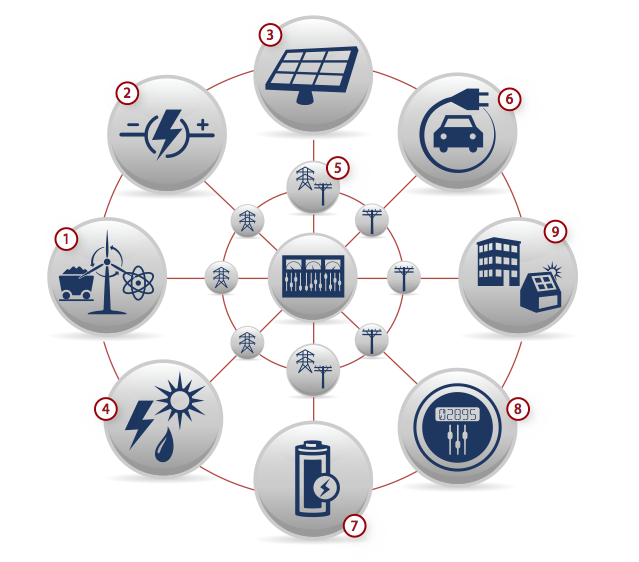36 item(s) were returned.
The last few years have seen advancements in energy technology improvements – particularly in the realm of efficiency, distributed generation, and the smart grid. However, many feel that the deployment of new technologies has been slowed by the political and regulatory challenges surrounding energy policy, along with the large number of stakeholders involved. A new report from the Center for American Progress, “The Networked Energy Web,” aims to reorient the energy policy discourse, away from a partisan federal policy battle, and towards pursuing a bipartisan solution for the “massive technology-deployment challenge for the economy writ large.” The authors describe the… [more]
View InsightIn a column for the New York Times titled “There’s Still Hope for the Planet,” columnist David Leonhardt describes why investments in technology – particularly governmental investments in clean tech research and development – may be the best bet for reducing CO2 emissions, and may provide a small basis for optimism to those interested in fighting climate change. Leonhardt argues that renewable energy, which is becoming increasingly cost-competitive with traditional fossil fuels, and the emergence of natural gas as a replacement for coal, make putting a price on CO2 emissions less attractive than investment programs. “Carbon pricing is going to… [more]
View InsightEarlier this year the U.S. imposed tariffs on Chinese solar products after the U.S. Commerce Department deemed that China provided Chinese solar panel manufacturers unfair subsidies, resulting in artificially low prices. These low prices, it was argued, made it difficult for more expensive American solar products to compete in global and domestic markets. At the time, opponents of the tariffs argued that the move would increase prices, eliminate jobs and threaten the U.S. solar industry. Recent analysis shows solar prices continue to fall even though Chinese manufacturers, eager to stay in the U.S. market, are buying more expensive components outside… [more]
View InsightThe House Armed Services Committee’s newly proposed 2013 Pentagon budget contains a provision that would prevent the U.S. Department of Defense (DoD) from purchasing alternative fuels, largely in the form of biofuels, if they cost more than traditional fuels. The proposal comes at a time when the military is ramping up its use of biofuels and the U.S. biofuel industry could use the certainty provided by a customer as large and influential as DoD. An example of DoD’s alternative fuels efforts: In 2009, the navy announced a plan that would have the navy utilize 50% non-oil energy in its operations… [more]
View InsightA new report – coauthored by researchers from the Brookings Institute, the World Resources Institute, and the Breakthrough Institute – examines the coming decline in subsidies and tax breaks for renewables, and what that decline might mean for the U.S. renewables industry. The report argues that the decline imperils the industry, but suggests that this issue presents an opportunity to reform the subsidies and programs currently in place. The American Recovery and Reinvestment Act of 2009 ushered in a brief era of heightened support for the clean tech and renewable energy sectors, providing just over $150 billion through 2014. However,… [more]
View InsightIn 2007, US EPA began using renewable identification numbers (RINs) to track fuel producer compliance with the Energy Policy Act of 2005’s Renewable Fuel Standard (RFS), which calls for fuel blends to contain a minimum amount of renewable fuels. RINs quantify the biofuel, produced or imported, used in fuel blends. Fuel producers buy and sell them, and then submit them to demonstrate compliance. The complexity of RIN markets and RFS compliance has come under scrutiny lately, as several instances of fraud have emerged. In 2010, two small biofuel producers – Clean Green Fuel and Absolute Fuels – started selling fraudulent… [more]
View InsightLast week, DOE announced plans to continue its provision of loan guarantees for approved renewable energy projects. The announcement comes seven months after the controversy surrounding the agency’s loan to Solyndra, the California-based solar manufacturer which filed bankruptcy after receiving a $535 million DOE loan guarantee. Solyndra’s loan guarantee was administered under a program authorized by Section 1705 of the American Recovery and Reinvestment Act of 2009, which elapsed in September 2011. The new loans will be directed under a program created by section 1703 of the Energy Policy Act of 2005. The Section 1703 program has $34 billion in… [more]
View InsightIn 2011 the Obama Administration put out a challenge to utilities: give customers a way to better access and understand their energy use data. The challenge, and its result the “Green Button” initiative, is based on the assumption that the more information consumers have, the smarter they will be about their energy use decisions. Utilities around the country have begun to sign on to the initiative and commit to provide their customers with real-time energy use data. Data provided by utilities through the Green Button initiative will be collected and hosted by the Department of Energy in a standardized format.… [more]
View InsightA recent report from the Bipartisan Policy Center, Energy Innovation at the Department of Defense: Assessing the Opportunities, challenges the assumption that the DoD can function as a be-all-end-all driver of U.S. energy. From the report: “DoD’s historical record on energy innovation is extraordinary, and there is reason to hope that important advances might come from a renewed effort in this area. But there also appear at present to be significant limitations upon the scope and scale of DoD’s likely influence on technological advance that can contribute to the nation’s energy infrastructure as a whole, and particularly to the development… [more]
View InsightProfessor of Physics
City College of the City University of New York
For decades many have considered nuclear fusion to be the brass ring of energy technologies, believing that – were it to be successful and commercially viable – it would offer sustained electricity production with no CO2, particulate pollution, or radioactive waste. Research into safely and consistently harnessing fusion’s potential for civil use has been ongoing since the mid-Twentieth Century. Yet to date no viable commercial applications have been developed. Two prominent fusion research efforts – ITER and the National Ignition Facility (NIF) – are facing potential problems. ITER may be at risk of diminished U.S. funding due to tightening Congressional… [more]
View Insight

